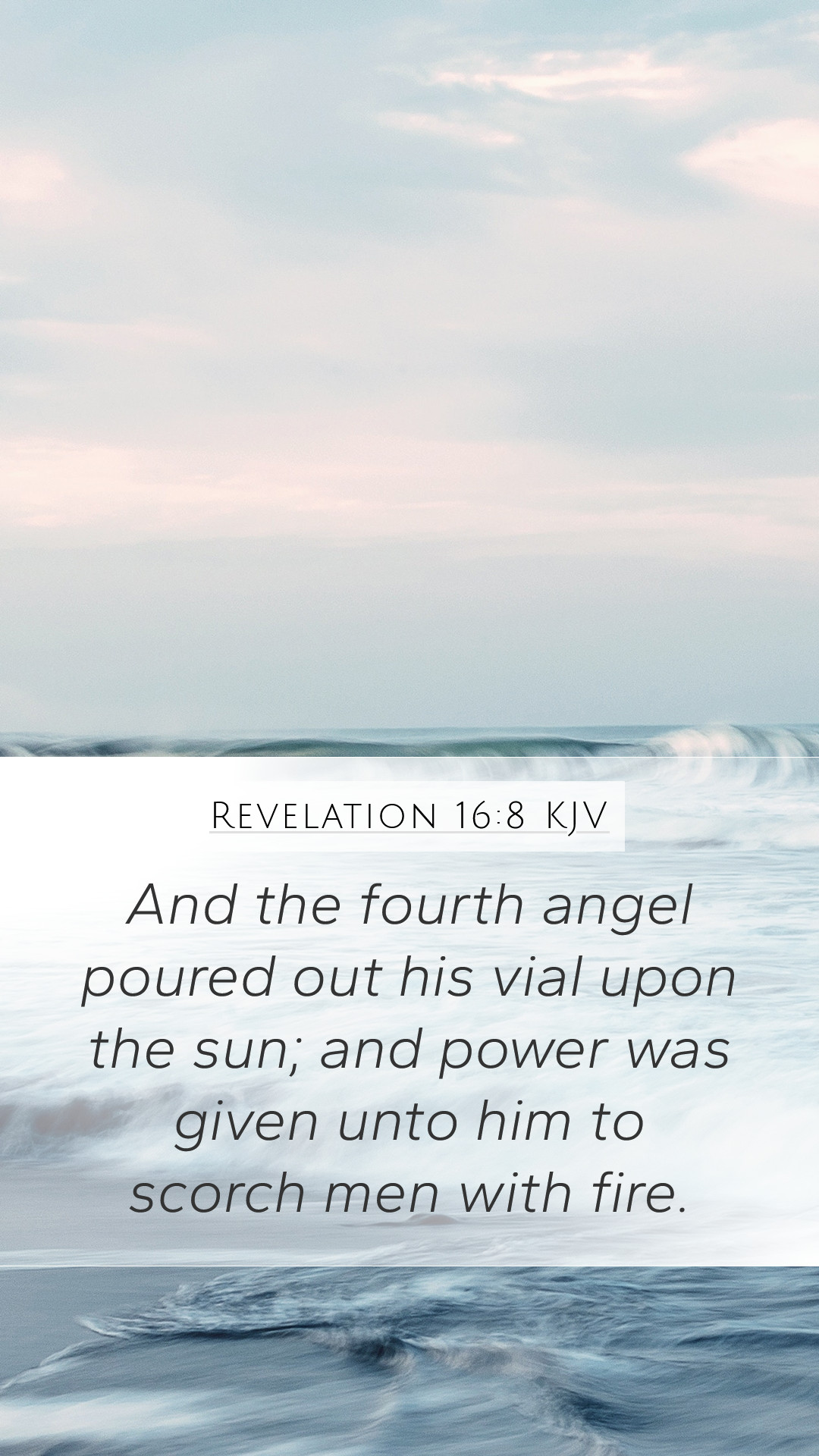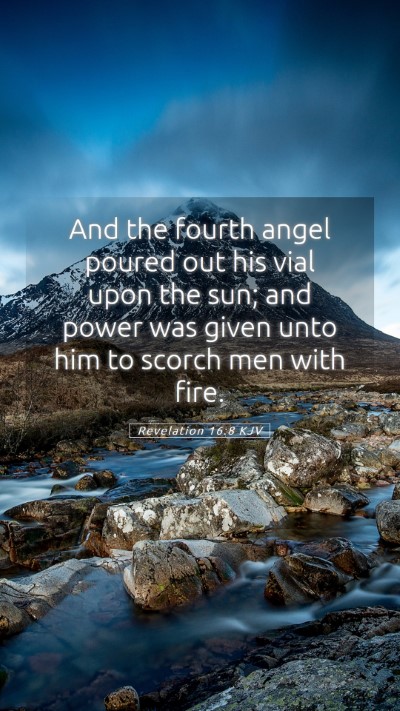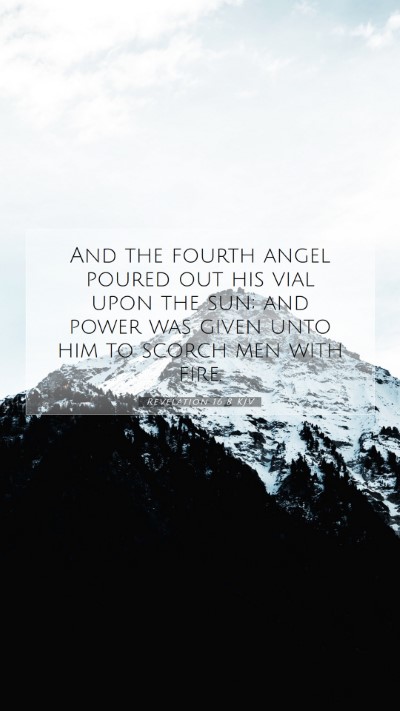Bible Verse Commentary: Revelation 16:8
Revelation 16:8 states, "The fourth angel poured out his vial upon the sun; and power was given unto him to scorch men with fire." This verse represents a critical moment in the Revelation narrative, characterized by divine judgment and the unfolding of apocalyptic events. Below, we explore the meanings, interpretations, and significance of this verse through insights from public domain commentaries by Matthew Henry, Albert Barnes, and Adam Clarke.
Understanding Revelation 16:8
The pouring out of the fourth vial signifies a major event in God’s judgment. The angel's action demonstrates God's sovereignty over the natural world, as He allows the sun to scorch humanity. This passage can be interpreted as a representation of God's judgment on those who reject Him and persist in sin.
Commentary Insights
-
Matthew Henry:
Henry notes that the judgment described is a divine retribution against idolatry and blasphemy. The scorching signifies not merely physical pain but also spiritual torment—reflecting the consequences of turning away from God. It highlights God's authority and the seriousness of sin, emphasizing that those who have resisted repentance will face severe judgment.
-
Albert Barnes:
Barnes explains that this judgment relates to the “day of the Lord,” where natural elements become agents of divine retribution. The imagery of the sun burning men is symbolic, indicating that God’s wrath can manifest in the very fabric of creation. Barnes emphasizes the "power" given to the angel signifies that these judgments are indeed divinely sanctioned and serve as warnings to humanity.
-
Adam Clarke:
Clarke interprets the "sun" as a symbol of oppressive judgments, possibly representing the church's persecution. He suggests that this imagery correlates with the increasing intensity of trials faced by believers amidst an ungodly generation. Clarke encourages readers to understand these events within the broader context of hope and ultimate restoration in Christ.
Theological Implications
Revelation 16:8 raises profound questions about justice and divine intervention. The power of the angel to scorch reflects the notion that God's wrath is not arbitrary but part of a righteous judgment on sin. This verse asks readers to consider their relationship with God and challenges them to seek repentance in view of divine accountability.
Application to Daily Life
From a practical standpoint, this verse invites believers to examine their lives critically. It serves as a reminder to pursue holiness and avoid the paths that lead to spiritual destruction. Engaging with Revelation 16:8 in personal reflection or Bible study groups can help in understanding the severe consequences of turning away from God's commandments.
Cross References
- Revelation 7:16-17: Discusses relief from God's judgment and comfort for believers.
- Romans 1:24-32: Describes God's abandonment of those who reject Him.
- Luke 21:25-26: Speaks of signs in the heavens as indicators of God's impending judgment.
Conclusion
In summary, Revelation 16:8 serves as a powerful reminder of God's judgment against sin and the potential for great suffering resulting from humanity's rejection of divine authority. This verse can significantly enrich Bible study insights, inviting careful interpretation and personal reflection. Understanding scripture in this manner can lead to deeper Bible verse meanings and enhance the application of biblical teachings in daily life.
Further Study Resources
To expand on the themes presented in Revelation 16:8, consider utilizing various Bible study tools and Bible study materials available within your community or online platforms. Joining Bible study groups can provide opportunities for engaging discussions and deeper comprehension of Bible verse interpretations.


